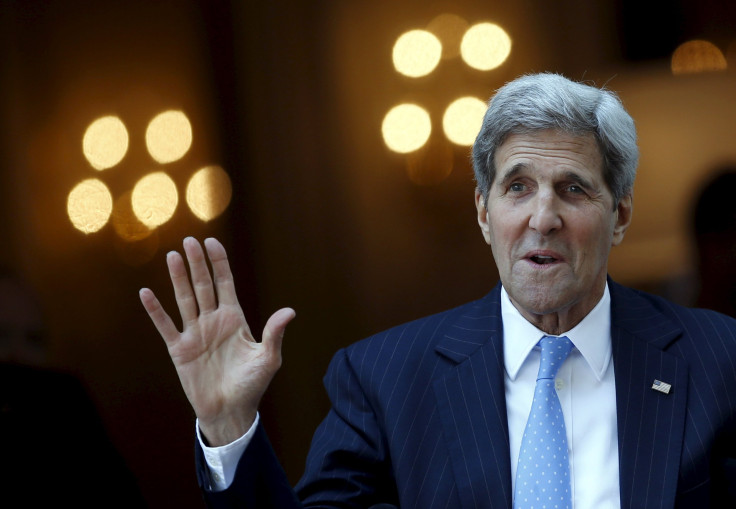Iran Nuclear Talks: Mixed Signals From Diplomats As Deadline Looms

Update as of 06:49 a.m.: U.S. Secretary of State John Kerry expressed optimism that a deal over Iran's nuclear program could be reached Sunday.
Kerry says he is "hopeful" after his last meeting with Iranian Foreign Minister Mohammad Javad Zarif. He says a "few tough things" remain in the way of agreement but "we're getting to some real decisions," the Associated Press Reported.
In a further sign that a deal may be imminent, Russian Foreign Minister Sergei Lavrov plans to take part in talks on Sunday, according to Reuters. Lavrov was only likely to attend Sunday's talks if a deal was likely to be agreed, according to earlier reports.
Original story below
Diplomats sent out conflicting signals about the progress being made in negotiations on a deal to curb Iran's nuclear program Saturday, as a self-imposed deadline for progress approaches.
Speaking to the press, Iranian President Hassan Rouhani said that his country had “managed to charm the world” in its negotiations with the P5 +1 powers, which include the U.S., China, Russia, the U.K., France and Germany, the Guardian reported. In addition, Tehran's nuclear chief, Akbar Salehi, declared "good news" to gathered press on Saturday night, according to the Jerusalem Post.
By contrast, the U.S. delegation was largely silent for most of Saturday. After U.S. Secretary Of State John Kerry met with Iranian Foreign Minister Javad Zarif and EU foreign affairs chief Federica Mogherini he tweeted that they “still have difficult issues to resolve.”
"Everything is on the table. It's now time to decide," French Foreign Minister Laurent Fabius warned on the 15th day of the tortuous talks, AFP reported.
Talks in Vienna went on until just before midnight Saturday, as officials struggled to forge a consensus on the key remaining sticking points, which include the sanctions regime and arms embargo imposed on Iran. An official close to the talks, however, told AFP that "ninety-eight percent of the text [of an agreement] is finished.”
.@FedericaMog currently meeting with @JohnKerry and @JZarif #workingdayandnight #IranTalks pic.twitter.com/u4Kwg8AMgt
— Catherine Ray (@CatherineEUspox) July 11, 2015Other issues that have created difficulties in the talks include international demands that Iranian military facilities be opened to inspectors, and Iran's demand that its ballistic missile program be separated from the nuclear sanctions regime. Western powers flatly rejected this demand, according to a Reuters report.
Under the terms of a framework deal agreed in April, Iran is to slash the number of centrifuges it operates from more than 19,000 to just over 6,000 and cut its stocks of enriched uranium, moves which are intended to lengthen the amount of time it would take the country to accrue enough fissile material to build a nuclear weapon.
In stark contrast to the rhetoric of Iranian diplomats in Vienna, Iran's supreme leader Ayatollah Ali Khamenei told a group of students in the country Saturday that the U.S. was the “absolute embodiment of arrogance,” and called on the Iranian people to prepare themselves to continue the struggle against “arrogant powers,” Iran's Press TV reported.
The deadline for an agreement to be reached in the nuclear talks is Monday.
© Copyright IBTimes 2024. All rights reserved.






















